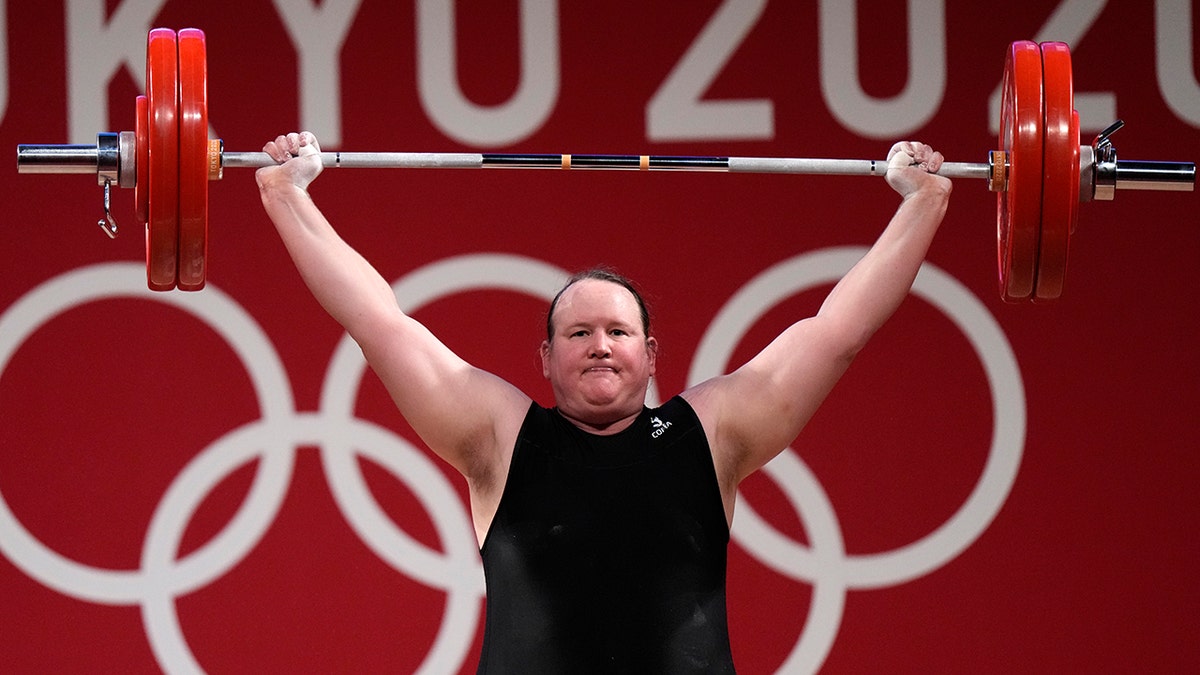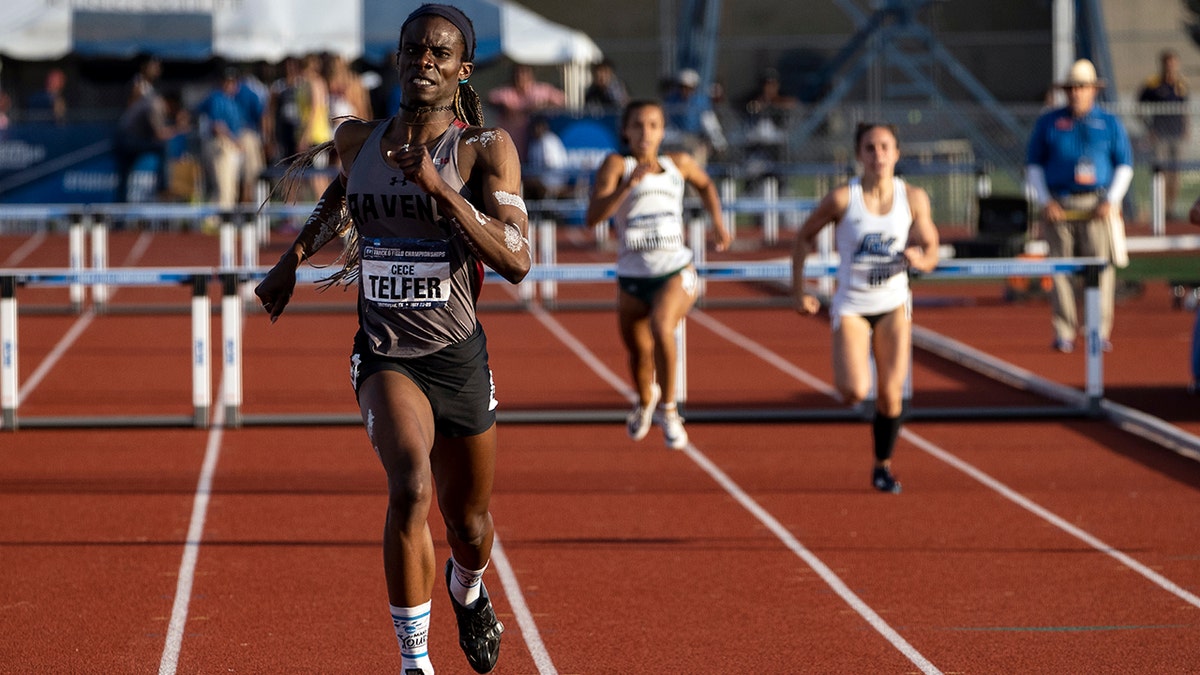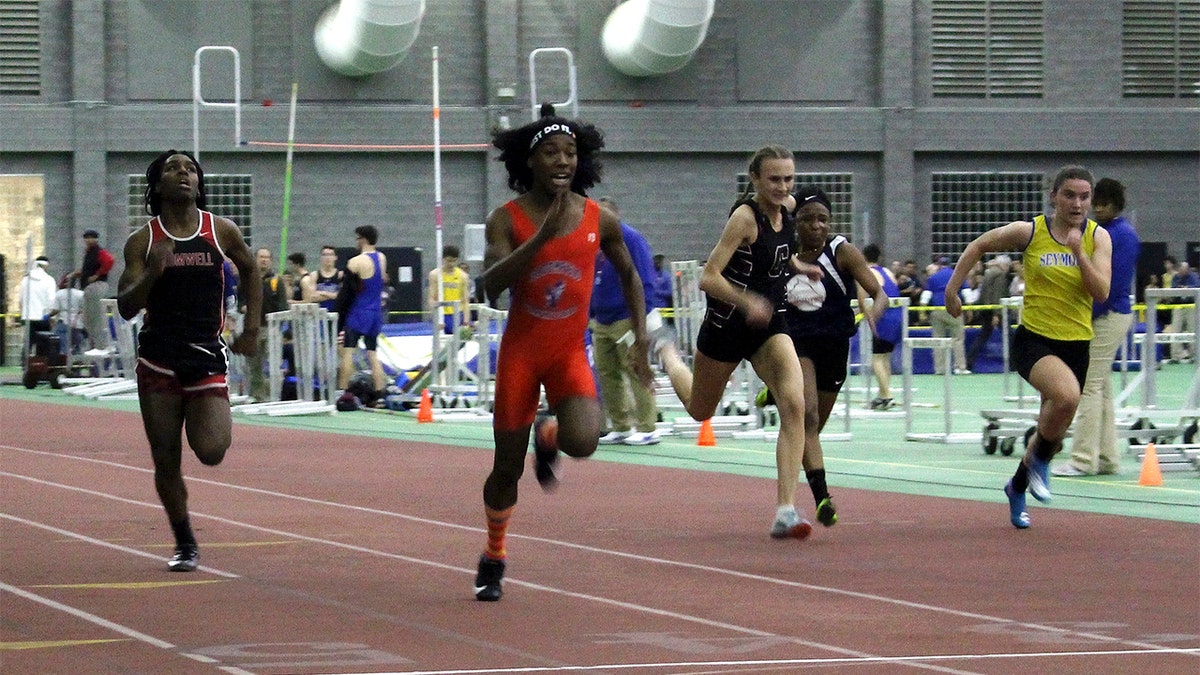Donna de Varona: Transgender sports policy is an 'emerging environment'
Olympic gold medalist and Title IX advocator Donna de Varona discusses her latest campaign for transgender sports rights
A transgender swimmer’s record-breaking wins at the University of Pennsylvania have renewed concern over the future of women’s sports.
Lia Thomas, a transgender student at the Ivy League university, dominated the 500-yard freestyle preliminaries and finals at the Zippy Invitational at the University of Akron this month. Thomas earned a winning time of 4:34.06 in the finals, breaking the Ivy League record, and set new school records in the 1,650-yard freestyle and 200-yard freestyle competitions.
PENNSYLVANIA TRANSGENDER COLLEGE SWIMMER DOMINATES COMPETITION, SETS NUMEROUS RECORDS
Thomas previously competed as a man for three years on the school's men's team. Thomas' success on the women’s team has renewed criticism over allowing transgender women to compete against biological females.
Even some of Thomas' own teammates are angry about what they see as a lack of fairness.
"Most of the women are too afraid to speak out against this. But they must," tweeted Megyn Kelly.
"If Michael Phelps began competing as a transgender woman, all hell would break loose – so why is nothing being done to stop trans athletes like Lia Thomas from destroying women's sport?" tweeted Piers Morgan.
The New York Post editorial board also took issue with Thomas’ wins in her competitions as a woman in an op-ed arguing Thomas "is not a hero. She’s selfish."
The board wrote that the physical differences between men and women are "significant," noting the average 4-inch height difference and an average 32-pound weight difference between the sexes.
"Thomas argues this is about acceptance, and the media hails her victories as ‘progress,’ but neither is true. We can accept Thomas as she is while recognizing that this is fundamentally unfair," the board wrote.
NCAA rules state that a trans woman can't compete with women until after undergoing testosterone suppression treatment for a year. Thomas recently brushed off her critics in an interview, saying the NCAA rules are fair and "promote competition integrity."
But Thomas is far from the first athlete to dominate female sports after transitioning from male to female.
In August, New Zealand weightlifter Laurel Hubbard made history at 43 years old as the first transgender athlete to compete at the Olympics after the International Olympic Committee (IOC) said she met all the requirements for trans athletes and fair competition. Hubbard participated at the Tokyo Games but failed at her attempt to make the medal stand.

Laurel Hubbard of New Zealand competes in the women's +87kg weightlifting event at the 2020 Summer Olympics, Monday, Aug. 2, 2021, in Tokyo, Japan. (AP Photo/Luca Bruno)
In October 2019, Canadian transgender cyclist Rachel McKinnon set a world record in qualifying for the 35-39 age category 200-meter sprint, then went on to win the Masters Track Cycling World Championships in Manchester, England. She later penned an op-ed in The New York Times slamming her critics, including Donald Trump Jr., arguing that "trans women are women" and that it’s a "human right to be able to compete."
Also in October 2019, University of Montana cross country athlete June Eastwood was named the Big Sky Conference Athlete of the Week after finishing second at the Bronco Invitational in Sunnyvale, California.
In June 2019, Cece Telfer became the first openly transgender woman to win an NCAA title while competing for Franklin Pierce University. Telfer told OutSports at the time that she had no extra benefit in her races by being transgender. She said her height and the distance between hurdles were part of the disadvantages she faced, and that hormone suppression is of no help.
In June of this year, Telfer was ruled ineligible to compete in the U.S. Olympic trials after she failed to meet the World Athletic eligibility requirements.

CeCe Telfer of Franklin Pierce wins the 400-meter hurdles during the Division II Men's and Women's Outdoor Track & Field Championships held at Javelina Stadium on May 25, 2019, in Kingsville, Texas. (Rudy Gonzalez/NCAA Photos via Getty Images)
In February 2019, transgender high school students Andraya Yearwood and Terry Miller sparked controversy after dominating female track competitions in Connecticut, which is one of more than a dozen states that allow transgender high school athletes to compete without restrictions.
In April of this year, a federal judge dismissed a lawsuit brought by the girls competitors who claimed unfairness over the transgender policy.

In this Feb. 7, 2019, file photo, Bloomfield High School transgender athlete Terry Miller, second from left, wins the final of the 55-meter dash over transgender athlete Andraya Yearwood, far left, and other runners in the Connecticut girls Class S indoor track meet at Hillhouse High School in New Haven, Connecticut. (AP Photo/Pat Eaton-Robb, File)
In October, Texas became the latest state to ban transgender girls from participating in girls sports at public schools. Nine other states have enacted legislation either banning or limiting athletic participation by transgender students since 2019.
The NCAA has defended its policy, which requires testosterone suppression treatment, as part of its vision for "fair competition."
"The NCAA Board of Governors firmly and unequivocally supports the opportunity for transgender student-athletes to compete in college sports," the NCAA said in April. "This commitment is grounded in our values of inclusion and fair competition."
"The NCAA has a long-standing policy that provides a more inclusive path for transgender participation in college sports. Our approach – which requires testosterone suppression treatment for transgender women to compete in women’s sports – embraces the evolving science on this issue and is anchored in participation policies of both the International Olympic Committee and the U.S. Olympic and Paralympic Committee. Inclusion and fairness can coexist for all student-athletes, including transgender athletes, at all levels of sport."
Advocates like the American Civil Liberties Union have similarly argued that "[t]rans athletes do not have an unfair advantage in sports."
CLICK HERE TO GET THE FOX NEWS APP
The American Medical Association said in March that "barring transgender females from participating in school-sponsored organized sports consistent with their gender identity frustrates the treatment of gender dysphoria by preventing transgender females from living openly in accordance with their true gender."
It added: "This lack of treatment, in turn, increases the rate of negative mental health outcomes, substance abuse and suicide. In order for transgender females to live their lives fully in accordance with their gender identity, they must be able to publicly identify and compete as female athletes."
Fox News’ Emma Colton, Sam Dorman and Ryan Gaydos contributed to this report.









































